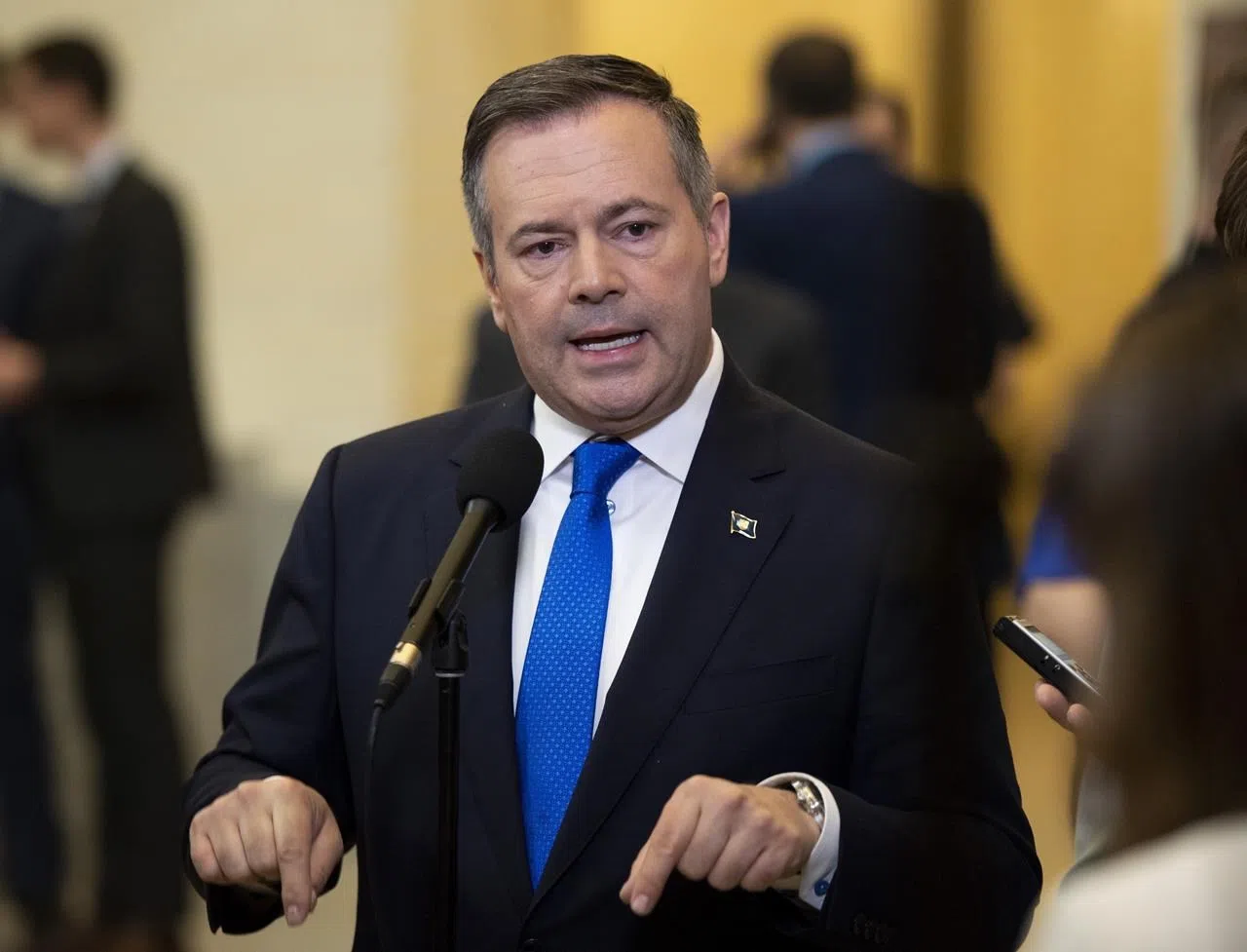
Alberta energy war room must avoid online morass, preaching to choir: experts
CALGARY — Tzeporah Berman only learned of her cameo appearance at an Alberta government news conference about its so-called energy war room after a flood of nasty messages.
Industry advocate Robbie Picard held a poster calling the prominent environmentalist an “enemy of the oilsands” as he introduced Premier Jason Kenney at the Calgary event.
Berman says dozens of violent, sexist social media messages and a few frightening voicemails followed.
“The idea of putting someone’s face on a poster and holding it up at a government press conference — I’ve never seen that before,” says the longtime opponent of oilsands expansion and international program director at Stand.Earth, a grassroots environmental group.
